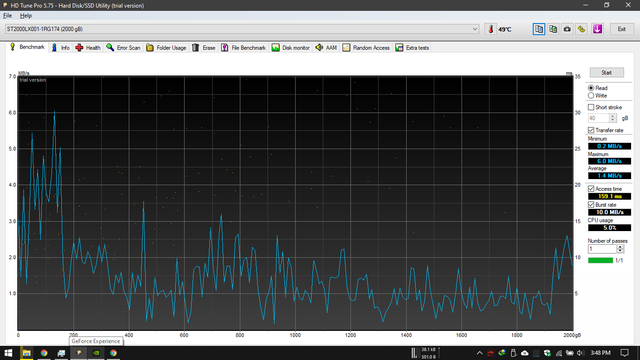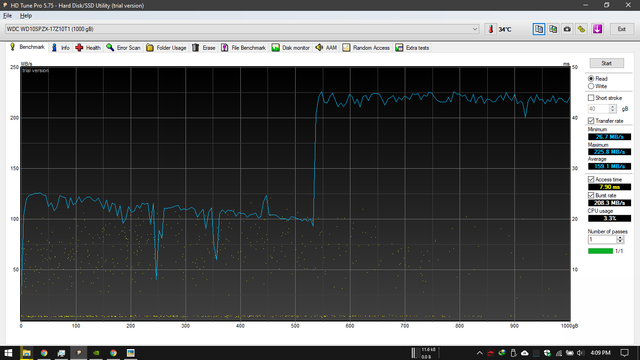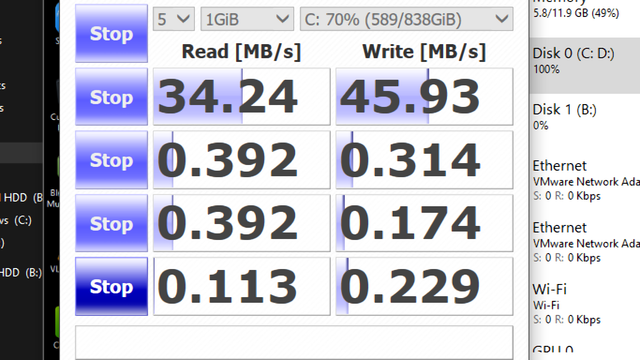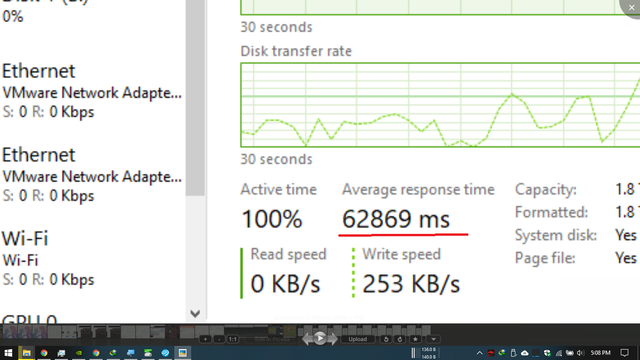I had newly purchased 2TB FireCuda for my laptop and migrate the OS. Sometimes it is very slow to transfer files with 60MBps after a hour it will goes 10MBps and it also affects the programs which it will not responding. Is this normal for SSHD? It was first time for me to use SSHD and I know HDD 5200pm is slow but not as slow my current SSHD. My old HDD is more responsive for multi transfer but only peak speed is 50MBPS. But on SSHD bootup is very fast and I did the CrystalDiskMark benchmark which is pretty much fine. It's kind of weird I tried to test SeaTools which gives response Ok condition.













